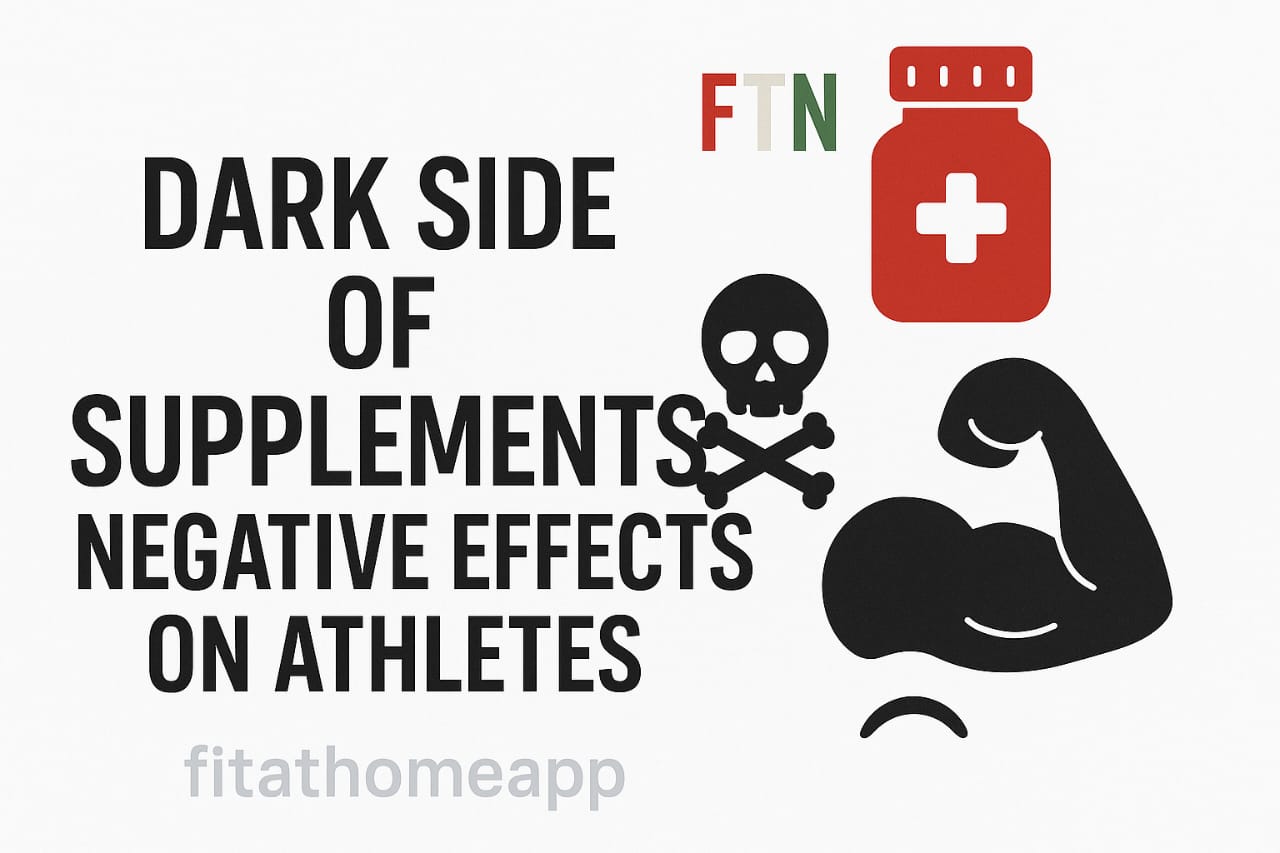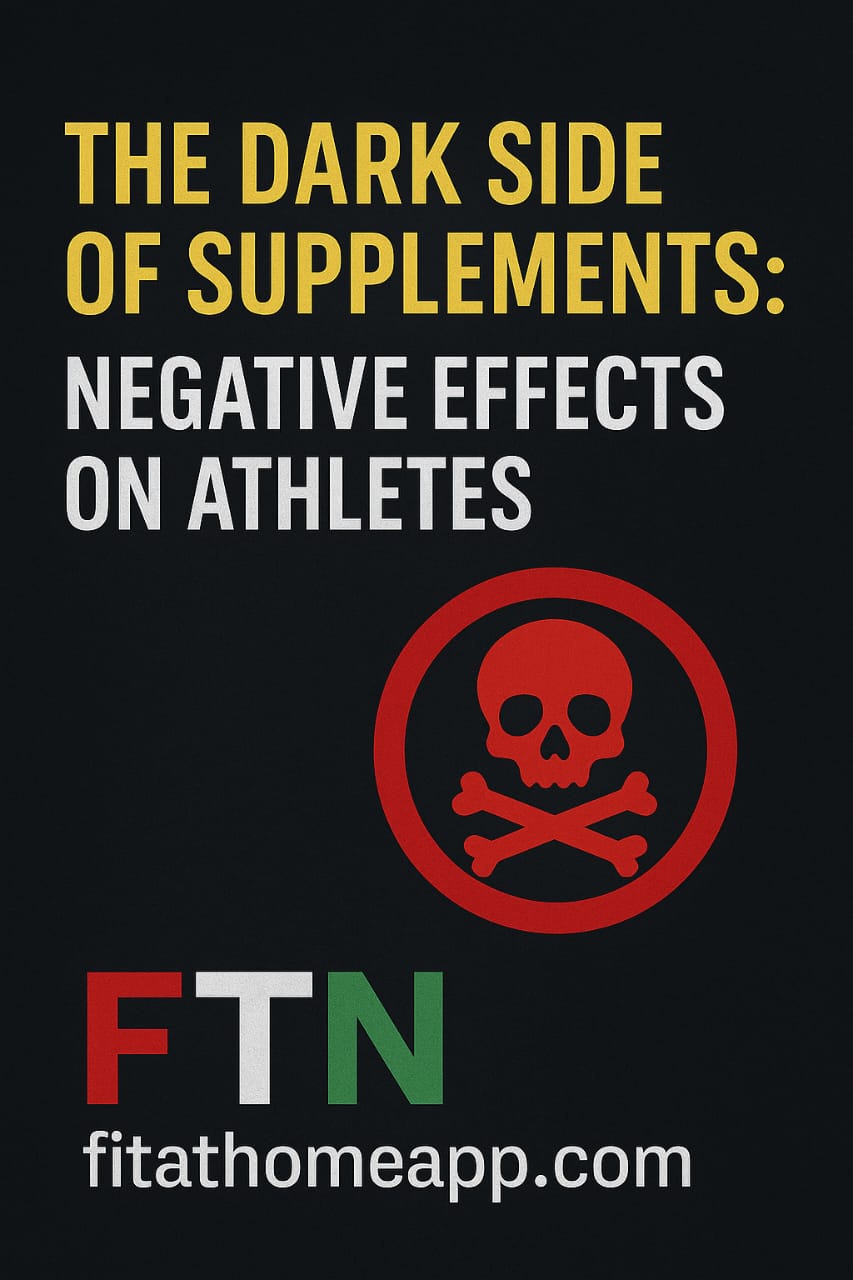Understanding Supplements: Benefits, Risks, and Smarter Choices for Athletes 💪 and dietary supplements
Introduction: What Are Dietary Supplements
Dietary supplements have become a popular addition to many athletes’ and fitness enthusiasts’ routines. From protein powders and multivitamins to energy boosters and recovery aids, these products are designed to support the body’s nutritional needs and improve athletic performance. They come in various forms, including capsules, tablets, powders, liquids, and even bars.
While some supplements may provide tangible benefits—such as aiding in muscle recovery, increasing energy, or filling dietary gaps—it’s important to approach them with a clear understanding. The supplement industry is vast, often unregulated, and sometimes misleading. For athletes striving to boost performance while protecting their health and career, knowing the facts behind these products is essential.
This article takes a closer look at the world of supplements, their potential risks, and safer alternatives for performance enhancement.
The Temptation of Performance Enhancement 🏃♂️✨
For athletes under constant pressure to perform at their best, the idea of gaining a competitive edge through supplements is tempting. Whether it’s recovering faster, lifting heavier, or running farther, the promise of improved outcomes in less time can be hard to resist.
Marketing plays a massive role in fueling this trend. Social media influencers, celebrity athletes, and flashy advertisements often promote supplements as the secret behind their success. Phrases like “boost your gains” or “shred fat fast” are frequently used without scientific backing. This creates unrealistic expectations among young or inexperienced athletes who may believe supplements are a shortcut to elite performance.
Additionally, peer influence is powerful. If teammates or gym buddies are using supplements and seeing progress, others may feel compelled to follow, fearing they’ll fall behind without them. Unfortunately, this social pressure can lead to uninformed choices—especially when the potential risks aren’t part of the conversation.
The Hidden Risks: Side Effects of Supplement Use ⚠️
Despite their popularity, many supplements come with potential side effects that users might not anticipate. Some of the most common—and serious—include:
1. Kidney and Liver Damage
Protein overload and certain stimulant-heavy products can stress the kidneys and liver, especially when used excessively or without medical supervision. Athletes with preexisting conditions are at even higher risk.
2. Hormonal Imbalances
Anabolic supplements, such as testosterone boosters and steroids, can significantly alter hormone levels. This might lead to side effects like acne, mood swings, reduced libido, or even fertility issues.
3. Digestive Issues
Creatine, pre-workouts, and some protein blends can cause bloating, nausea, or diarrhea when consumed in large quantities or without adequate hydration.
4. Mental Health Concerns
Supplements that contain high doses of caffeine or other stimulants can increase anxiety, restlessness, and even panic attacks. This is particularly concerning for athletes already under psychological stress.
It’s crucial to understand that not all supplements are inherently harmful, but their misuse—or use without medical advice—can lead to long-term health problems.
Contamination and Mislabeling: A Silent Danger 🧪
One of the most alarming issues in the supplement industry is the risk of contamination and inaccurate labeling. Unlike prescription medications, dietary supplements are not strictly regulated by government agencies like the FDA. This means that what’s on the label doesn’t always reflect what’s inside.
Independent testing has revealed supplements containing:
Undeclared stimulants
Anabolic steroids
Heavy metals
Banned substances
These hidden ingredients can lead to unintentional doping violations, putting athletes’ careers at risk. Even more worrying is that many users are unaware of these dangers until it’s too late.
To minimize risk, athletes should look for supplements that are third-party tested by organizations like NSF Certified for Sport or Informed-Sport. These certifications help ensure that the product has been screened for banned substances and meets quality standards.
Legal and Ethical Considerations for Athletes ⚖️
The consequences of testing positive for a banned substance can be severe: suspensions, fines, damaged reputations, or even permanent disqualification from competition. Yet many athletes fall into this trap unknowingly due to mislabeled or contaminated supplements.
Ethically, there’s also a fine line. Is it fair to use performance-enhancing substances—legal or not—if they give one athlete an advantage over another who chooses not to? This question raises important debates in the world of sports about integrity, fairness, and long-term health.
To stay on the right side of both the law and sportsmanship, athletes must educate themselves and choose their supplements (or alternatives) wisely.
The Power of Nutrition: A Natural Alternative 🥗🍳
Instead of turning to powders and pills, athletes can often achieve better results by focusing on whole-food nutrition and smart recovery techniques. Here’s how:
1. Balanced Macronutrients
A diet rich in carbohydrates, proteins, and healthy fats provides the energy and building blocks needed for optimal performance and recovery.
Carbs fuel high-intensity workouts.
Proteins repair and build muscle tissue.
Fats support hormone production and long-term energy.
2. Micronutrient Support
Vitamins and minerals—like calcium, magnesium, and iron—play critical roles in muscle function, oxygen delivery, and bone health. Instead of supplementing, athletes should aim to get these through a colorful, varied diet.
3. Hydration
Water and electrolytes are essential, especially during intense training. Dehydration can drastically impair endurance and focus. Sports drinks, coconut water, or simply well-planned hydration throughout the day can prevent this.
4. Meal Timing
Consuming the right foods before and after workouts can naturally boost energy and improve recovery. For example, a banana with peanut butter or a chicken-and-rice bowl can go a long way.
Real Stories: When Supplements Backfire 🧍♂️💬
Sometimes, the best lessons come from experience. Here are a few real-world examples:
Michael, a college football player, used pre-workout supplements daily. After weeks of heart palpitations and jitteriness, a hospital visit revealed dangerously high blood pressure. The stimulant-heavy formula was the culprit.
Lisa, an amateur bodybuilder, relied on fat burners to cut weight quickly. The supplements triggered hormonal changes, causing irregular periods and mood swings. Her doctor warned her to stop immediately.
Jake, a high school track athlete, failed a random drug test after using a protein powder he bought online. Lab results showed it contained traces of a banned substance. The result? A year-long suspension.
These stories serve as a reminder that short-term gains aren’t worth long-term damage.
Smarter Strategies: How to Train Without Supplements 🏋️♀️
Athletes can still make impressive progress by sticking to science-backed strategies:
Strength Training: Progressive overload with compound lifts like squats, deadlifts, and bench presses builds functional muscle.
Rest and Recovery: Sleep, foam rolling, stretching, and rest days are key to preventing overtraining.
Mindset and Motivation: Consistency, goal-setting, and a positive attitude are often more effective than any supplement.
These strategies may take more time and effort, but they’re sustainable—and much safer.
Final Thoughts and Recommendations ✅
Supplements can be beneficial when used responsibly, but they are not magic solutions. Athletes must weigh the benefits against the potential health, legal, and ethical consequences. Here’s what we recommend:
🔹 Consult a professional — Always speak to a doctor or licensed sports nutritionist before using any supplement.
🔹 Choose third-party tested products — Look for certifications to ensure quality and purity.
🔹 Focus on real food — A nutrient-rich diet is your best defense against fatigue, injury, and poor performance.
🔹 Educate yourself — Don’t fall for marketing hype. Understand what you’re putting into your body.
🔹 Listen to your body — If a supplement causes side effects, stop immediately and seek medical advice.
By making informed, responsible decisions, athletes can prioritize their health and still reach their performance goals—no shortcuts required.
🎥 Watch this expert-led guide for a no-nonsense approach to supplements:
🎥 My Personal Insight – “A guide to supplements for athletes | The advice you should know”
This video delivers a clear, disciplined guide on supplement use for athletes—breaking down what they are, when they might help, and when they could actually hurt performance or put an athlete’s career at risk. Presented by James—a clinician and sports nutrition specialist—it aligns directly with the article’s emphasis on critical thinking, awareness, and reputable testing.
I appreciate how he emphasizes a food-first approach, warning that supplements should never replace proper training, recovery, and nutrition. For added impact, including a real-world example—like referencing a known doping case or health scare—would drive the message home even more strongly


